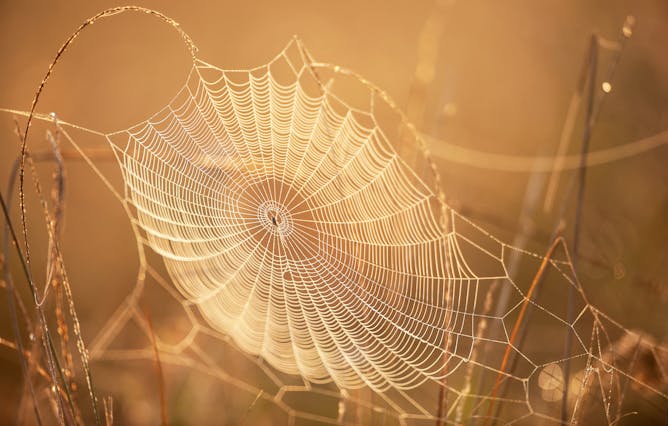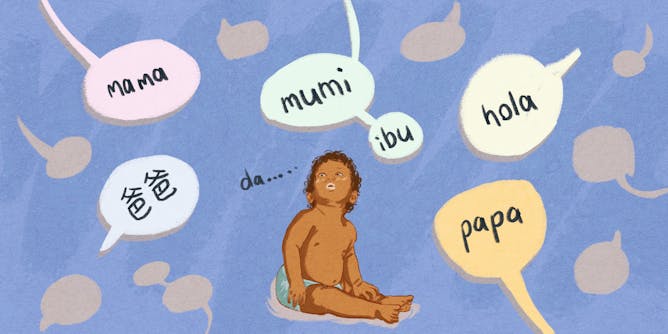|
|
|
Editor's note
|
|
What do patients really think about the NHS and those who work in it? Language expert Paul Baker spent three years analysing 29 million words of patient feedback and gained some startling insights into attitudes towards healthcare, overstretched services – and the importance of good manners.
Have you seen our special series for younger readers, in which they can send in questions to be answered by academic experts? For example George, age ten, was sceptical about the often-made claim that spider silk is stronger than steel – so he wrote to Curious Kids. Mark Lorch checks the evidence, and finds that even the strongest spider silk can’t take more weight than some steel. But it is pretty tough. Meanwhile, Christa Lam-Cassettari explains how babies learn to talk.
And check out this first-person report by Suzanne O’Connell, who has been aboard a vessel off the Antarctic peninsula drilling for sediment it is hoped will reveal secrets about the earth’s climate and oceans. It’s a fascinating read on the practicalities of such expeditions, which provide vital information from the distant past that can tell us much about the changing present.
|
Matt Warren
Deputy Editor
|

|
|
Top stories
|

Receptionists are in the firing line when patients get disgruntled.
Shutterstock
Paul Baker, Lancaster University
Analysis of 228,000 comments shows that while surgeons are likely to be called ‘outstanding’ and ‘brilliant’, receptionists are branded 'arrogant' and 'rude'. But it's not because they do a bad job.
|

Web of flies.
Shutterstock.
Mark Lorch, University of Hull
Spiders use different types of silk for different purposes – and not all of them are as strong as steel.
|

The experience that babies get from eavesdropping on their mother’s conversations in utero helps their brain tune into the language that they will learn to speak once they are born.
Emily Nunnell/The Conversation CC-BY-ND
Christa Lam-Cassettari, Western Sydney University
Using a sing song voice helps babies tell the difference between words like 'mummy' or 'daddy'.
|

The research vessel must dodge dangerous icebergs as it drills for sediment core samples.
Phil Christie/IODP
Suzanne O'Connell, Wesleyan University
A paleooceanographer describes her ninth sea expedition, this time retrieving cylindrical 'cores' of the sediment and rock that's as much as two miles down at the ocean floor.
|
Environment + Energy
|
-
Aled Jones, Anglia Ruskin University
The UK's Committee on Climate Change recommends the country commits to net zero greenhouse gases by 2050.
-
Michelle Lim, University of Adelaide
The Global Assessment of the Intergovernmental Science-Policy Platform for Biodiversity and Ecosystem Services has some sobering news.
-
Bagus Putra Muljadi, University of Nottingham
Termites have evolved sustainable air conditioning, say scientists.
-
Elizabeth Robinson, University of Reading; Herry Purnomo, Centre for International Forestry Research
Palm oil production is a leading cause of deforestation in Asia, but an EU ban may make matters worse.
|
|
Politics + Society
|
-
Stephanie Anderson, University of Glasgow; Kathy Hamilton, University of Strathclyde
One in 10 shops in the UK lies empty. These buildings could be put to good "meanwhile" use to benefit and sustain communities.
-
Catriona Havard, The Open University; Martin Thirkettle, Sheffield Hallam University
New study reveals small variations in the background colour of photos in police lineups can increase misidentification.
-
Philip Haynes, University of Brighton
Do the local election results reflect local realities?
|
|
Arts + Culture
|
-
David Callander, University of Cambridge; Rebecca Thomas, University of Cambridge
The original origins of some key characters names might give hints to their fates in Game of Thrones.
-
Jonathan Ridley, Solent University
Leonardo's range of knowledge fascination with flying led directly to the development of modern aircraft, nearly four centuries later.
|
|
Science + Technology
|
-
Alasdair Mackenzie, University of Aberdeen
One reason for the likes of the anti-vaxxers movement is a misplaced faith in Mother Nature.
-
Niamh Nic Daeid, University of Dundee; Christian Cole, University of Dundee; Michael Marra, University of Dundee
A failure to introduce robust science means forensic science has reached crisis point. The UK has to act now to address this threat to justice.
|
|
Health + Medicine
|
-
Sarah Rose, Staffordshire University
World Health Organisation guidelines on screen time lack nuance.
|
|
Cities
|
-
Alessandro Melis, University of Portsmouth
Leonardo da Vinci's ideal city contained design features and engineering works not realised until hundreds of years after he died.
|
|
| |
Featured events
|

|
Room K/133, King's Manor, York, York, YO1 7EP, United Kingdom — University of York
|

|
Brunel University London, Uxbridge, Hillingdon, UB83PH, United Kingdom — Brunel University London
|

|
Museum of English Rural Life, Redlands Road,, Reading, Reading, RG1 5EX, United Kingdom — University of Reading
|

|
Across various venues, York, York, YO10 5DD, United Kingdom — University of York
|
|
|
|
| |
| |
| |
| |
| |
|
|
|
|
|
|
|